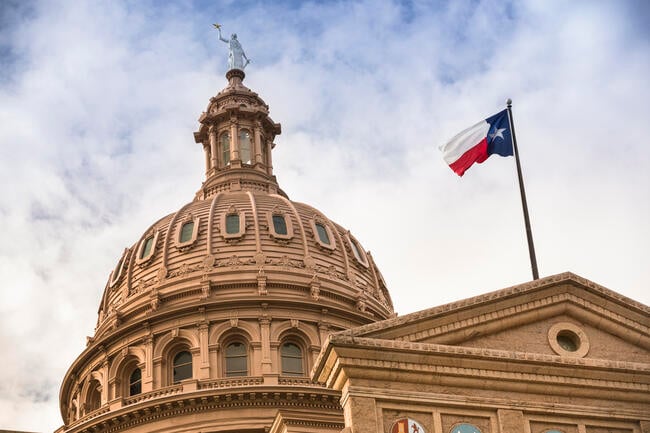You have /5 articles left.
Sign up for a free account or log in.

Pgiam/iStock/Getty Images Plus
Dear Colleagues,
Change is difficult, but we must face it honestly.
Here is the relevant portion of Texas Senate Bill 37, passed last month by the Texas Senate and now under consideration in the House of Representatives. From Sec. 51.315(b)(5):
“The governing board of each institution of higher education shall review the general education curriculum and other graduation requirements to ensure that courses ‘do not require or attempt to require a student to adopt a belief that any race, sex, or ethnicity or social, political, or religious belief is inherently superior to any other race, sex, or ethnicity or social, political, or religious belief, or to adopt any other similar ideology.’”
While I routinely defend the merits of managed capitalism—and believe robust debate about the virtues and limits of markets is both healthy and essential—the Texas Legislature may soon relieve me (and all business school faculty in the great state of Texas) of any responsibility to defend capitalism at all. In fact, they may soon make it illegal to do so.
And to be clear: Capitalism is unquestionably a social and political system. It falls squarely within the bounds of this bill. So, here we are.
Soon, we may no longer teach our students that the free market—that proud engine of prosperity, innovation and 17-step pyramid schemes—is inherently better than, say, feudalism, subsistence farming or economies based entirely on vibes.
“What?” you might say. “Surely not.”
Yes. Truly. By decree of our esteemed lawmakers—many of whom have recently completed the grueling intellectual journey from No Child Left Behind to No Faculty Left Unmonitored—it may soon be illegal to require students to believe, or even appear to attempt to require them to believe, that any “social, political, or religious belief” is inherently superior to another.
Of course, the Texas House might yet come to its senses—but betting on that feels a lot like hanging your hat on a steer and expecting it to stay put.
So, I think the best thing for us to do here is a slow Texas mosey down the path of least resistance. Yes, fellow business school educators, we need to embrace this new golden age of ideological neutrality:
Capitalism? No better than medieval serfdom.
Democracy? Merely one option among many—have you considered divine right monarchy?
Rule of law? Just another lifestyle choice, like homeschooling.
Please be advised: Any course syllabus implying that free enterprise is preferable to centrally planned grain-requisitioning committees may soon draw the watchful gaze of the newly proposed Office of Excellence in Higher Education
In the spirit of full compliance, I suggest we revise our course titles:
Introduction to Capitalism → One Economic System Among Many, Subject to Student Discretion
Strategic Management → Choosing a Feudal Lord: An Entrepreneurial Approach
Marketing Principles → Convincing Fellow Peasants to Trade Turnips for Shiny Rocks
Business Ethics → Situational Morality and the Occasional Bribe: A Survey
Entrepreneurship → How to Monetize Barter, Favor Trading and Grow Magic Beans
Although business professors are many things—many of them delightful—we are not lawbreakers. We are good citizens. And we must be vigilant. Out with our smug notions of capitalist superiority. I mean, is our current way of economic life really superior to community-based subsistence chestnut gathering or the utopian gift economies of Burning Man?
And—at least in my opinion—it would be a good idea if all exams given in the Department of Management included the following mandatory essay question:
“Explain why capitalism, socialism, anarcho-syndicalism and government by wizard council are all equally valid models, citing at least three TikToks.”
I hope you will join me in embracing this bold new era of ideological neutrality, where we teach without fear, without favor and without a shred of common sense.
Long live academic freedom—at least until the next committee hearing.
Yours in sincere compliance,
Brent




